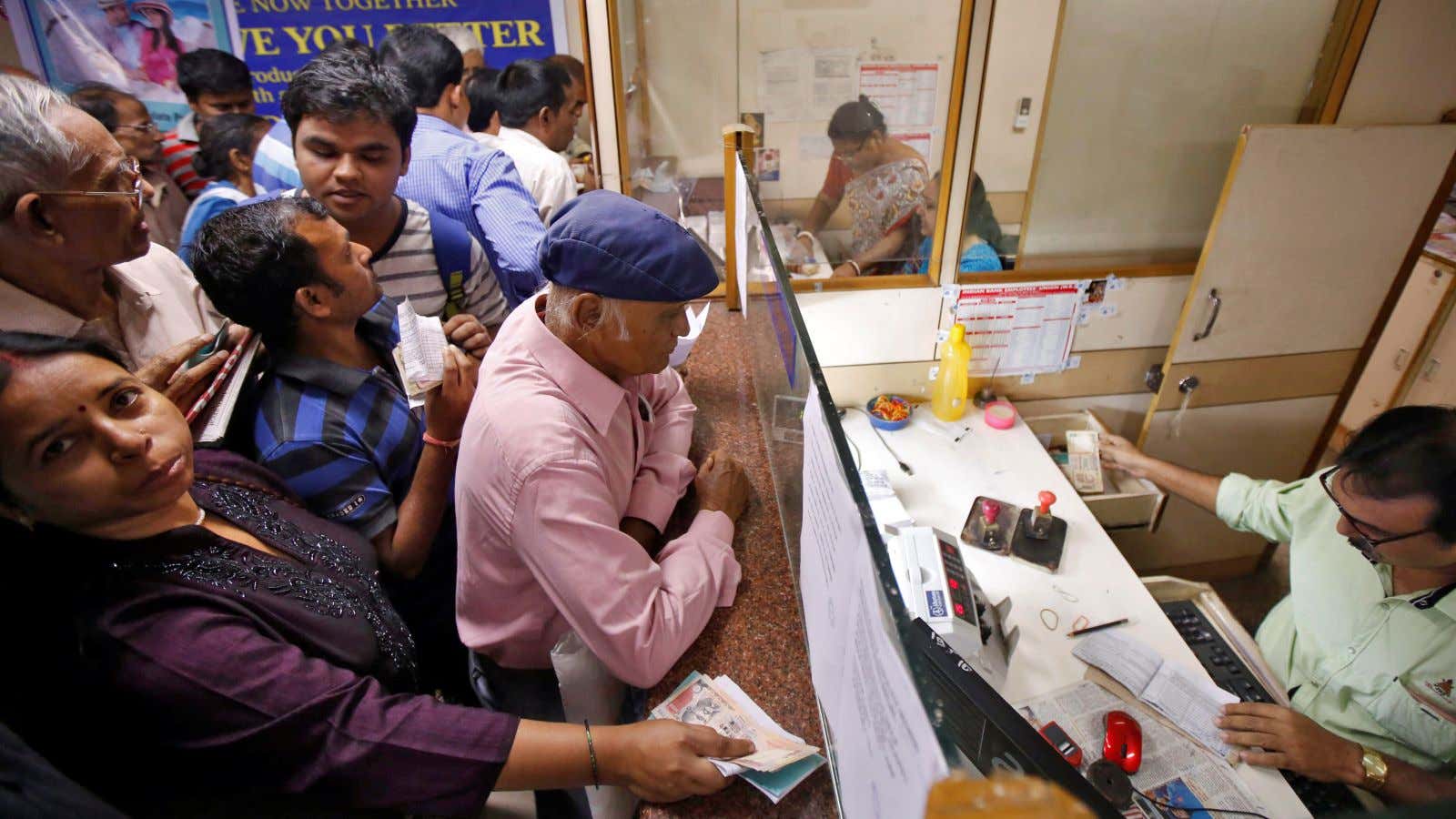The massive clean-up of bad loans in India is turning out to be a prolonged battle for survival for the country’s banks.
Eleven out of the 21 public sector banks in India were already under the banking regulator’s supervision, and had to contend with restricted business so far. Now, the Reserve Bank of India (RBI) has completely barred one of them, Dena Bank, from lending any further or hiring fresh employees.
The RBI has tightened the leash as the financial strength of the Mumbai-headquartered bank did not improve after the corrective steps initiated in May 2017. Between January and March 2018, Dena Bank’s gross non-performing assets (NPA) soared to 22.04% of its total loans, and it reported a net loss of Rs1,225.42 crore ($182.1 million) in the same quarter.
Apart from Dena Bank, the other lenders under the RBI’s prompt corrective action (PCA) plan include Allahabad Bank, Indian Overseas Bank, Central Bank, United Bank, Bank of Maharshtra (BoM), Corporation Bank, Bank of India, UCO Bank, Oriental Bank of Commerce (OBC), and IDBI Bank.
The PCA is a mechanism to strengthen the weak banks, which have breached certain benchmarks with respect to NPAs, return on equity, capital requirements, etc.
In the first phase of the programme, lenders are not allowed to distribute dividends and the owner is asked to pump in more capital. The owner is the government of India in the case of the 11 banks being monitored as of now.
Further checks are placed on hiring, expanding the branch network, and lending if the financial position of a bank does not improve after the first set of remedial measures. So far, Dena Bank is the first to be barred from any fresh lending in recent years.
In the third phase, the RBI can also recommend the winding down of a bank or a merger between peers.
One of the reasons for the spike in soured loans at Dena Bank is the stricter set of guidelines for NPA recognition issued by the RBI in February this year.
Under the new norms, banks are required to recognise and report a default instantly, leaving little room for accounting jugglery. Indian banks have been blamed for giving out fresh loans to repay older ones, leading to an unprecedented pile-up of gross NPAs to the tune of Rs8.41 lakh crore, as of December 2017.
As the latest RBI norms eliminate the scope for under-reporting bad loans, even privately-owned giants like ICICI Bank and Axis Bank have reported a surge in defaulted loans. This has led to fears that more lenders may face regulatory actions like Dena Bank due to rise in reported bad loans.
India’s finance ministry has reportedly called for a meeting of the 11 banks under PCA on May 17 to take stock of their issues. As a part of the government’s bailout plan, these eleven banks will receive Rs52,311 crore as fresh capital in financial year 2018. But will that lifeline be enough?
